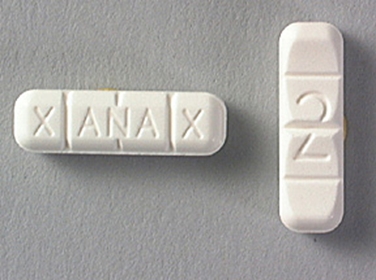Xanax Addiction: From Anxiety to Abuse

However, Xanax was an easy drug to become addicted to because it relieved pressure and it made me feel calm and worry-free. However, there are multiple side effects that include:
- Drowsiness
- Headaches
- Fatigue
- Memory Problems
- Dry Mouth
- Difficulty Concentrating
- Constipation
- Seizures
- Depression
- Shortness of Breath
Xanax is the drug that was prescribed to me for the longest amount of time. I didn’t know it had the potential for abuse. I was only told of how Xanax would help me. I was never told how Xanax would hurt me. As I grew deeper into my addiction, I realized that I could abuse Xanax. I started to abuse my prescription and overtime, I found myself growing rapidly addicted.
Xanax was the one drug that I could not give up. I was able to quit every drug that was prescribed to me, but for some reason I could not stop snorting Xanax. The reason I chose to go to rehab is because I couldn’t give up Xanax.
For all the shame I experienced in my addiction, Xanax helped me forget it. Whenever I was feeling overwhelmed, guilty, or ashamed, I just took a Xanax and I was immediately brought back to peace. Overtime, however, I had to take more to get the same effects. My friends became worried about me because they found out I was abusing my Xanax prescription. They kept asking me to quit and trying to help me. I would attempt to quit on my own but the withdrawal from Xanax is heavy and I felt like I was in a cloud of fog without it.
I also learned that Xanax is very dangerous to try to quit on your own. Some withdrawal symptoms can include:
- Insomnia
- Muscle tension
- Numbness
- Anxiety
- Tremors
- Depression
After trying to quit Xanax on my own, I was advised to withdrawal from Xanax in a safe environment.
The first part of my treatment from Xanax addiction was the detoxification process. During this period, the medication was reduced and removed from my body.
At first it was difficult to adjust to life without Xanax. I had to learn new tools that would bring me out of anxiety and into comfort. However, I could not rely on an addictive substance to do this for me. It had to be natural. Detox was only the first step in my treatment process. After detox, I attended a treatment program in order to understand the underlying reasons for my addiction. During treatment, I was able to build a recovery toolbox, receive individual and group therapy, and find community.
We are here to help.

ABOUT LARA
Lara Frazier is a truth-teller, a sobriety warrior and a writer. She is a FIERCE believer in the power of owning our stories and is a strong advocate for addiction recovery. Lara shares a story of healing: in sobriety, through addiction, in life and love, and in all the other big huge moments of fear and magic that we rarely talk about, but we should. Find more of Lara’s work on Instagram @sillylara.


